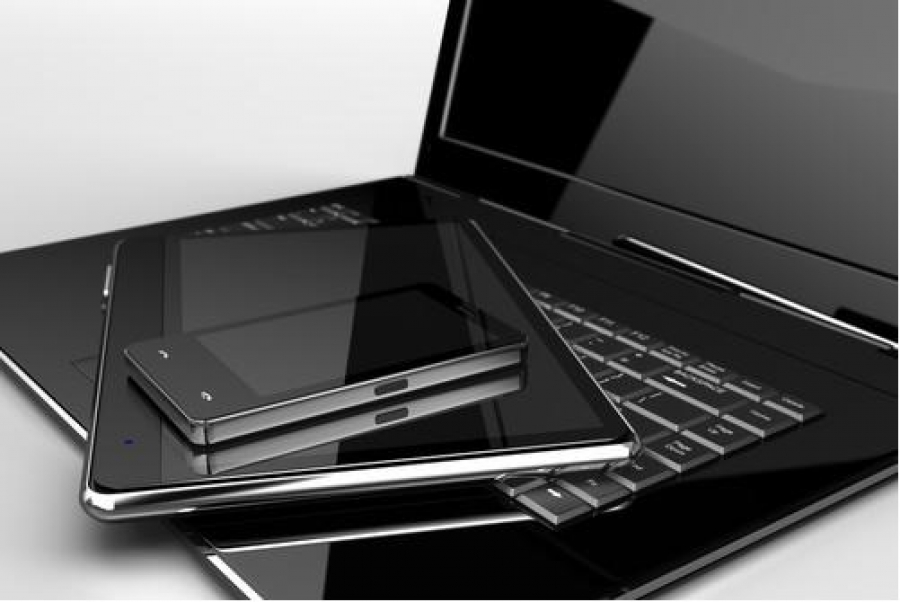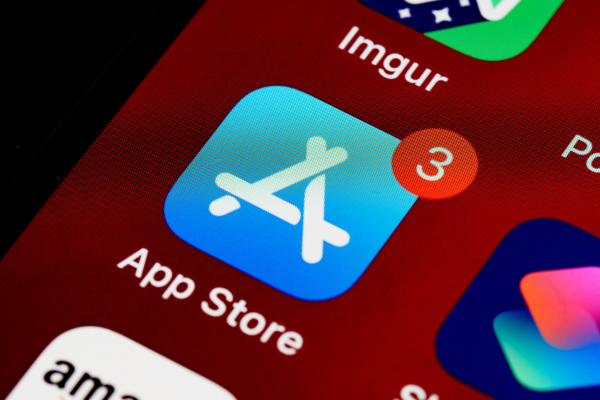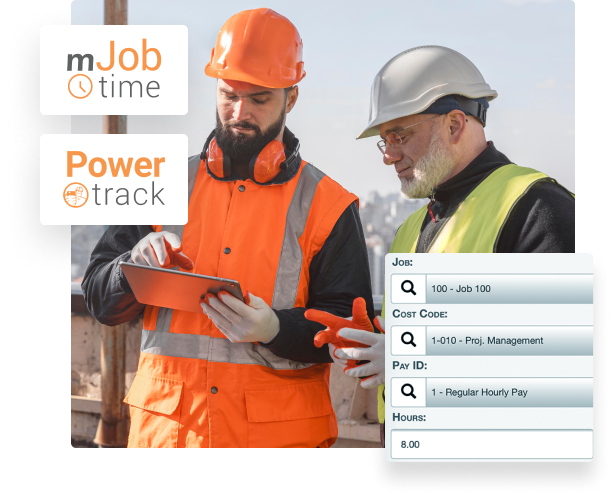By now, most companies with workers in the field know that mobile communication devices can provide huge benefits in terms of efficiency and productivity. According to a recent analysis of small and midsized businesses in the construction industry commissioned by Sage, almost nine out of ten (85%) decision makers believe mobile technology has a positive effect on their company’s productivity. Everything from blueprints to electronic time cards is now being utilized on mobile devices. Field managers often have instant access to company information, and can communicate immediately with office or other staff members.
But what is the best device for you? The following provides a little insight into the most popular mobile devices.
Cell phones – The size and level of sophistication of a company will, in many cases, determine what types of devices will be the most effective. Smaller companies may be primarily concerned about two things – billing their customers and paying their employees, and in many cases, what they pay the employees determines how much to bill their customers. Such simple requirements can often be satisfied with either a java-enabled cell phone app or possibly, an application that allows its workers to call in their time to a web-based server system. These systems typically provide the employer with time by employees, job, and task without the need for more sophisticated equipment and cellphone data plans.
Smartphones – According to a survey by EMA Contractors, the use of smartphones by contractors on the jobsite increased by 35% from the previous year. The survey states that the increased popularity is due to the convenience that mobile device technology provides, and what is more convenient that a smartphone? Smartphones typically fit easily in a pocket or purse and thus, can be with the employee at all times. The sophistication and power of these small devices has continued to evolve allowing for the use of powerful mobile applications. The disadvantages of smartphones are 1) the lack of screen real estate – the relatively small screens on these devices limit the amount of data or images that can be shown on them, and 2) cost. The purchase price of smartphones is usually not a major cost factor, but to use mobile software applications on them often often requires a monthly data plan from the cell phone provider.
Tablets – Per the EMA Contractors survey mentioned above, tablet use by contractors rose an even more impressive 54%. However, they still are only used by 22% of contractors. While not nearly as conveniently mobile as smartphones, tablets are becoming extremely popular because their increased screen real estate allows the user to see and do much more. Blueprints are a great example. Drawings can be easily viewed and changed on a tablet. Notes can be made. Images can be added. They offer much more functionality without the size and weight of a laptop computer. And with the advent of the tablets with keyboards, they will only increase in viability. Tablets are also more expensive than smartphones. There is wide range of prices for tablets depending on their size and specifications. They also require either a Wi-Fi connection or a cellular data plan.
Laptops – Laptop computers are the old reliable standard for companies needing substantial functionality. They come with much greater resources that provide their users with the power to do sophisticated calculations and data processing. Laptops are primarily Windows-based, and for many users, do not require much user training. They come in a wide range of sizes and prices, but are generally much bigger and more expensive than tablets. In the field, laptops are typically connected to the Internet through aircards provided by a cellular network service provider through a monthly data plan. Of the devices mentioned in this post, laptops are the least mobile option.
The computing environment for mobile devices is changing rapidly. The trend is for smaller, more powerful devices. However, the functionality needed will have a significant impact on the appropriate device. For some companies, the optimum configuration may be a mix of devices.
What is the right option for you? We will be happy to review your situation and assist you in finding the right solution. Our sales professionals are experienced, highly trained, and are interested in helping you succeed. Give them a call at 866-922-TIME (8463), email them at [email protected] or click here to request a demo.
“Great minds discuss ideas; average minds discuss events; small minds discuss people.”
Eleanor Roosevelt







